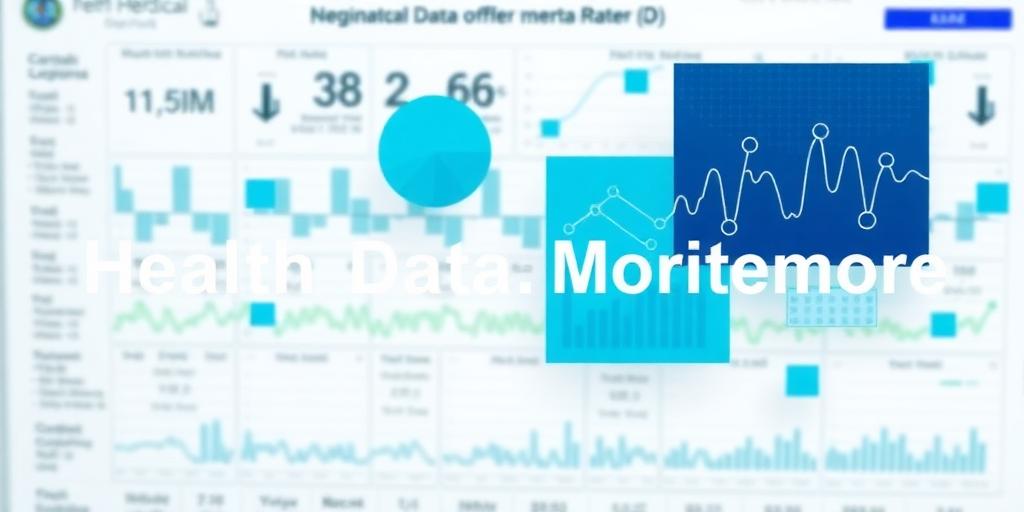Your Health Data for Sale: The Monetization of Medical Information
In an era defined by data, few commodities are as sensitive and valuable as health information. From electronic health records (EHRs) to wearable fitness trackers, our medical data is constantly being collected, analyzed, and, increasingly, monetized. This article delves into the complex world of health data monetization, exploring the sources of this data, how it's used, and the ethical considerations involved.
Sources of Health Data
- Electronic Health Records (EHRs): EHRs are digital versions of a patient's chart. They contain a wealth of information, including medical history, diagnoses, medications, and lab results. These records are a primary source of data for healthcare providers, but they also hold significant value for research and commercial purposes.
- Wearable Devices: Fitness trackers and smartwatches collect a wide range of physiological data, such as heart rate, sleep patterns, and activity levels. This data is often shared with app developers and can be aggregated and sold to third parties.
- Genomic Data: Genetic testing services have become increasingly popular, providing insights into ancestry and health risks. The resulting genomic data is highly valuable for pharmaceutical companies and research institutions.
- Insurance Claims: Health insurance companies collect vast amounts of data related to claims, including diagnoses, procedures, and costs. This data can be used to identify trends, manage risk, and develop new products.
- Social Media and Online Forums: Patients often share their health experiences and information on social media platforms and online forums. This data can be mined to gain insights into patient behavior and preferences.
How Health Data Is Used
- Research and Development: Health data is essential for medical research and the development of new treatments and therapies. Researchers use this data to identify patterns, understand disease mechanisms, and evaluate the effectiveness of interventions.
- Personalized Medicine: By analyzing an individual's health data, healthcare providers can tailor treatments to their specific needs and characteristics. This approach, known as personalized medicine, aims to improve outcomes and reduce adverse effects.
- Healthcare Management: Health systems and insurers use data analytics to improve efficiency, reduce costs, and enhance the quality of care. For example, data can be used to identify patients at high risk of hospitalization and provide targeted interventions.
- Marketing and Advertising: Pharmaceutical companies and other healthcare organizations use health data to target their marketing efforts to specific patient populations. This practice raises ethical concerns about privacy and manipulation.
- Financial Trading: Hedge funds and other financial institutions are increasingly using health data to inform their investment decisions. By analyzing trends in healthcare utilization and outcomes, they can gain an edge in the market.
Ethical Considerations
- Privacy: The privacy of health data is a major concern. Patients may not be aware of how their data is being used and may not have control over who has access to it. Data breaches and unauthorized disclosures can have serious consequences.
- Informed Consent: Patients should be fully informed about how their health data will be used and should have the right to consent to or decline its use. However, obtaining meaningful informed consent can be challenging.
- Data Security: Health data must be protected from unauthorized access and misuse. Organizations that collect and use health data must implement robust security measures to prevent data breaches and ensure data integrity.
- Equity: The monetization of health data could exacerbate existing health inequities if certain populations are disproportionately affected by data-driven decisions. For example, if algorithms are trained on biased data, they could perpetuate discriminatory practices.
- Transparency: Greater transparency is needed regarding how health data is being used and who is benefiting from it. Patients should have access to information about the data economy and their role in it.
Conclusion
The monetization of medical information is a complex and rapidly evolving issue with significant implications for individuals, healthcare providers, and society as a whole. While health data has the potential to drive innovation and improve patient care, it also raises serious ethical concerns about privacy, security, and equity. As the data economy continues to grow, it is essential to develop clear and enforceable regulations that protect patient rights and promote responsible data practices.









